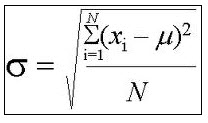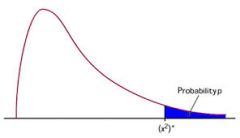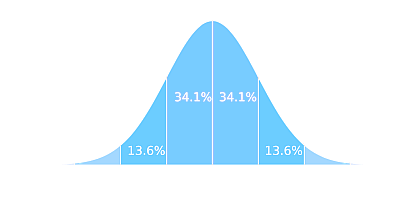Hypergeometric Probability Calculator
Instructions: Use this Hypergeometric Probability Calculator to compute hypergeometric probabilities using the form below. Please type the total number of objects (N), the total number of defectives (K) and the sample size n, and provide details about the event you want to compute the probability for (The events are defined in terms of number of defectives in the sample):
Hypergeometric Probability Calculator
Here we explain a bit more about the Hypergeometric distribution probability so you can make a better use of this Hypergeometric calculator: The hypergeometric probability is a type of discrete probability distribution with parameters \(N\) (total number of items), \(K\) (total number of defective items), and \(n\) (the sample size), that can take random values on the range of \([0, K]\).
The hypergeometric distribution formula
If \(X\) is a Hypergeometric random variable with parameters \(N\), \(K\) and \(n\) , then for \(k \in [0, K]\) we get
\[ \Pr(X = k) = \frac{\left( \begin{matrix} K \\ k \end{matrix}\right) \times \left( \begin{matrix} N-K \\ n-k \end{matrix}\right)}{\left( \begin{matrix} N \\ n \end{matrix}\right)} \]
The hypergeometric distribution versus Poisson and Binomial
The hypergeometric distribution is among the most popular discrete distributions you can use, together with the Poisson distribution and the binomial distribution .
In terms of properties, the hypergeometric is closer to the binomial distribution, as they are both apply in the idea of of a number of trials and the probability of getting a defective item.
The setting is similar, with N trials, but the difference is that with the hypergeometric distribution, the probability of extracting a defective is changing from trial to trial, whereas for the Poisson distribution the probability of a defective (which is 1 - p) is constant for ALL trials.
Other discrete distribution calculators
A similar distribution is the binomial distribution (with the difference that the proportion of defectives remains constant when sampling without replacement. Check our binomial probability calculator . Another notable discrete distribution is the Poisson distribution , which you may be interested in checking out.



